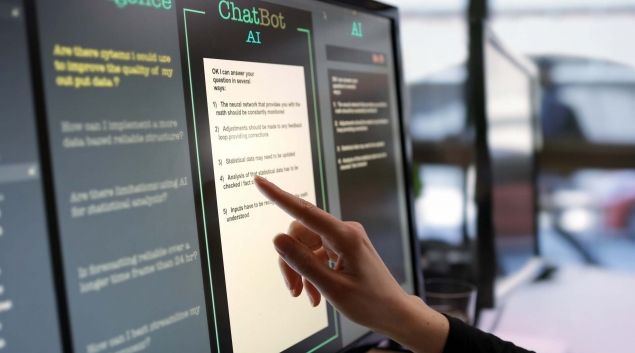
Photo: Laurence Dutton/Getty Images
Mount Sinai Health System in New York is adopting artificial intelligence with the recent announcement opening of the Hamilton and Amabel James Center for Artificial Intelligence and Human Health, dedicated to the research and development of AI tools and technologies.
The interdisciplinary center will combine AI with data science and genomics in a central location at Mount Sinai Hospital in Manhattan. The facility will initially house approximately 40 “principal investigators,” alongside 250 graduate students, postdoctoral fellows, computer scientists and support staff.
The center was made possible in part by a donation — which the health system has not disclosed — from Hamilton Evans “Tony” James, executive vice president of Manhattan-based investment firm Blackstone, and his wife, Amabel.
WHAT IS THE IMPACT?
To build the new AI Center, Mount Sinai retrofitted an existing building to meet modern standards, including updating the facade to align with the aesthetic of other buildings on campus.
Of the center’s 12 floors, eight will be dedicated to Mount Sinai’s AI initiatives, the health system said.
These core facilities include Windreich’s Department of AI and Human Health, which is focused on creating an “AI fabric” that will integrate machine learning and AI-based decision-making throughout system hospitals.
They also include the Hasso Plattner Institute for Digital Health at Mount Sinai, established in 2019 through a collaboration with the Hasso Plattner Institute for Digital Engineering in Germany, which aims to improve capabilities in data science, engineering biomedical and digital, machine learning, AI and wearable technology.
The Institute for Genomic Health and Division of Medical Genetics is another, leading efforts to harness the power of genomic discovery to develop new ways to prevent and treat diseases, including cancers, heart problems and genetic disorders. The Institute for Biomedical Engineering and Imaging, focused on the use of multimodal imaging for brain, heart and cancer research, is also considered a critical facility in this effort.
Rounding out the list, the Institute for Personalized Medicine launched the human genome sequencing research project called the Mount Sinai Million Health Discoveries Program. This program aims to enroll one million racially and ethnically diverse patients, advance precision medicine research, and improve patient care.
THE BIGGEST TREND
Last year, researchers at Mount Sinai developed a new artificial intelligence model designed for electrocardiogram analysis. The approach could significantly improve the efficiency and accuracy of ECG assessment, according to the health system, because the model allows heart readings to be interpreted like a language.
Mount Sinai said more than 100 million EKGs are performed each year in the United States – but the ECG’s usefulness is limited because it is difficult for doctors to visually identify certain patterns representative of a disease .
Jeff Lagasse is editor-in-chief of Healthcare Finance News.
E-mail: jlagasse@himss.org
Healthcare Finance News is a HIMSS Media publication.

